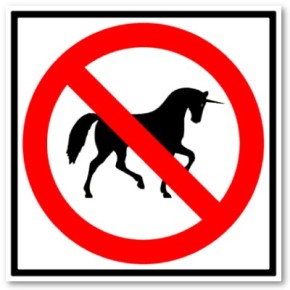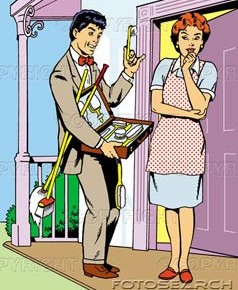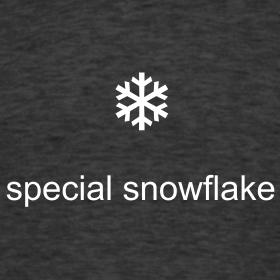Why Your “Special Snowflake” Ads are Bound to Fail (and What to Do About Them)
I dipped my bucket into the veritable well of knowledge that is Claude Hopkins to find this gem for you.
If you haven’t heard of him, Hopkins was known as the father of modern advertising. His book, Scientific Advertising, is one of the greatest introductions to advertising ever written. David Ogilvy (the “King of Madison Avenue” and founder of the Ogilvy & Mather ad agency) said no one should be allowed to create an ad until after they read Hopkins’ book… not once, not twice… but at least SEVEN times.
Well, success does leave clues. And I’ve come to realize that the old Scotsman Ogilvy was right.
There’s something about Scientific Advertising that “catches” me every time I go through it. I can’t help myself. No matter how thoroughly I read, I just can’t resist going back to it like a drunken gold miner and shaking the pan again.
But I always find something shiny in that pan. Something that I can use and you can use, too.
Ready? Wait a second. All you “special snowflakes” out there, brace yourselves! I don’t want to damage your sensitive egos (too much).
Still with me? O.K. Now grit your teeth and repeat after me…
“My Copywriting is NOT Special. It Isn’t Magic Fairy Dust Falling from the Mane of a Unicorn. It’s Just Plain, Everyday Writing I Use to Sell Things.”
“But Corey,” you say, “my copywriting is special! I don’t know what the heck you’re talking about!” Then you kick sand in my face and walk off to the other corner of the playground.
O.K., O.K. You might want to do that, but before you do, maybe you could hear me out first?
Focus on the specific words I chose: “not special.” I didn’t say your stuff wasn’t creative, witty, or unique. And I sure didn’t say you weren’t talented (you’re working hard and reading my blog… so it’s pretty much inevitable).
All I said is that your ads (and this applies to mine and Claude Hopkins’ ads also) aren’t special. I chose that term because, despite our enormous talent, that doesn’t mean we can break all the rules. It just doesn’t work that way. Our ads have to follow the same natural laws of persuasion and human psychology… just like everyone else’s.

It’s Time to Make Your Marketing a No-Unicorn Zone!
Say you had a car, I had a car, and Claude Hopkins had a car. And we line those beauties up, ready for an impromptu drag race as soon as the stoplight turns green. One of our cars would be faster than the others… but NONE of them could defy the laws of physics.
Got it? That’s gravy. I’m sorry I have to beat you over the head with this. But I’ll keep whacking away (with l-o-v-e) until people accept the bleak, grim reality. Until people recognize that:
People Have Made up a Set of Special Rules You Must Follow… Simply Because You’re Writing an Ad. This “Set of Rules” is Complete, Total, Utter Hogwash!
You like that word, “hogwash?” Awesome, I know.
How come we insist on following special rules… just because we’re creating an ad? Despite the reality that, according to Mr. Hopkins, the ONLY difference between “advertising” and the the door-to-door salesman pitching to individual prospects is one of degree?
Hmm…
Advertising is just “sales multiplied.” It isn’t some unique, mythical beat. What applies when making a successful sale in person also applies when creating an effective advertisement. And the reverse scenario is also true: what doesn‘t work in selling, doesn’t work in advertising.
The road to ruin starts with thinking that you’re “special” just because you’re dreaming up a sizzling new ad instead of canvassing the neighborhood selling your daughter’s girl scout cookies. And it ends with lackluster results, pissed off clients, and a carousel of blame you could spin around on for days.
O.K. It’s time to leave your special snowflake syndrome with Santa Claus, notions of a benevolent government, and other childhood fantasies.
But how do you knock down the Berlin Wall – the one separating “advertising” from “sales” – that you’ve built up in your mind? All it takes is a little awareness. That and a simple question to ask yourself whenever you considering a strategic advertising decision:
“Would it be a Good Idea for a Salesperson to Do This in Person?”
Ask yourself this each and every time you encounter a “commandment” of advertising. It will help you fine-tune your B.S. meter to sniff out all the false prophets and hang on to the valuable advice.

“Ma’m, Can I Interest You in Some Cleaning Supplies?”
Let’s practice this now. I’m about to go Samuel L. Jackson on some common misconceptions out there (and I enjoy nothing more than slaughtering timeless, treasured advertising “truths”):
- “Your body copy should be short. People don’t like too read too much.” Baloney. Would you tell a salesman to keep his conversations with his prospects short? Hell no you wouldn’t! You’d make sure he stayed on that doorstep as long as it took to satisfy even the most meticulous prospects… and knock all the apathetic ones off the fence.
- “Writing great copy requires fancy writing or a literary style.” Wrong again. One of the keys to writing persuasive copy is to write freely, openly, and without pretense. You’re far better off writing like you talk (with all of your charming imperfections) than trying to sound “refined.” People relate to you more when your words give off a human warmth. You wouldn’t tell a salesperson to bring a thesaurus with him to close a sale.
- “Using large type and big headlines is the way to go.” Sometimes helps to get your prospect’s attention… but only sometimes. Would you enjoy a visit from a saleswoman who banged on your door, yelled to introduced herself, and spit in your face while she made her pitch? Nope? Same goes for “loud” ads, too.
- “You should use something quirky or unusual in your ad to make more sales.” Really? You think your neighbors would be more willing to buy a magazine subscription from a stranger who limped around the block in alligator skin boots and a parka in 85 degree weather? They’d be just as likely to call the cops. Ads with personality are a good thing, but intentionally trying to “be weird” won’t do you any favors. A good salesman wouldn’t do it and you shouldn’t either.
Question Authority to Succeed as a Copywriter (and One More Tip From Hopkins)
If you want to become a world-class copywriter (and I know you do), you must be willing to question accepted conventions. As long as you can remember that whatever you create has to operate within the fundamental laws of persuasion, salesmanship, and human psychology, you’ll be off to the races.
Your brochure might be “fancier” than the pitch from the salesman who pounds the pavement selling life insurance. But if something’s working for him, pay attention; you can incorporate it into your ads to improve their persuasive power. The only difference between your work is degree.
And now, time for one more bomb of truth from the Father of Advertising. Check this out:
Don’t think of people in the mass. That gives you a blurred view. Think of a typical individual, man or woman, who is likely to want what you sell. Don’t try to be amusing. Money spending is a serious matter. Don’t boast, for all people resent it. Don’t try to show off. DO just what you think a good salesman should do with a half-sold person before him.
I couldn’t have said it any better myself.
It’s getting warm in here. I bet some special snowflakes are melting already.
